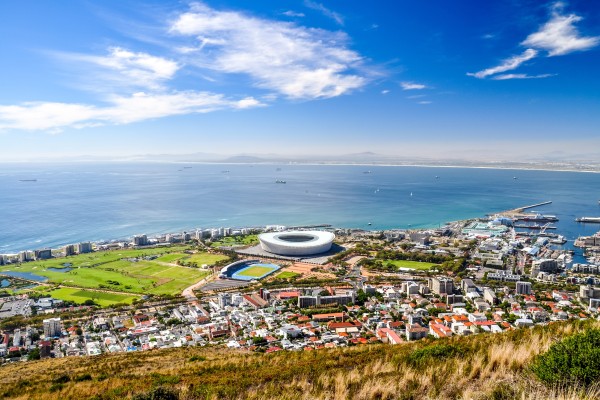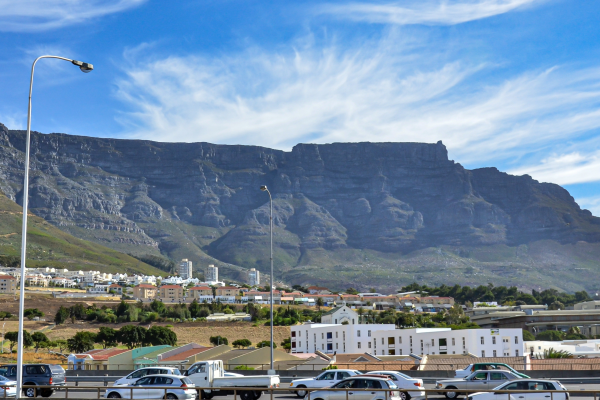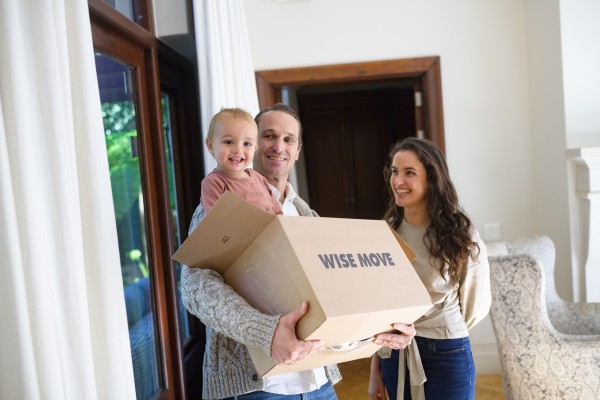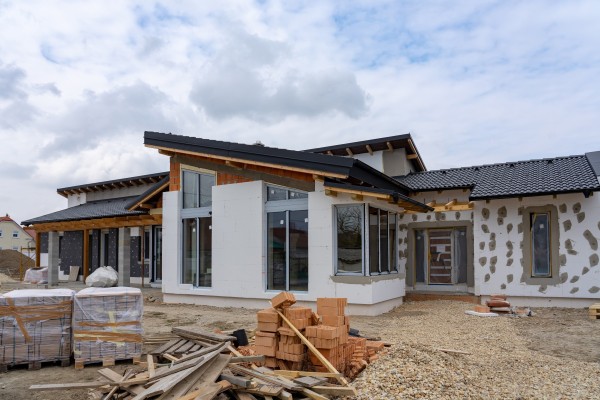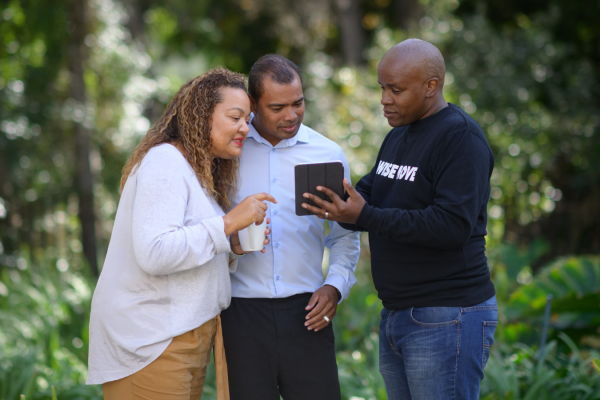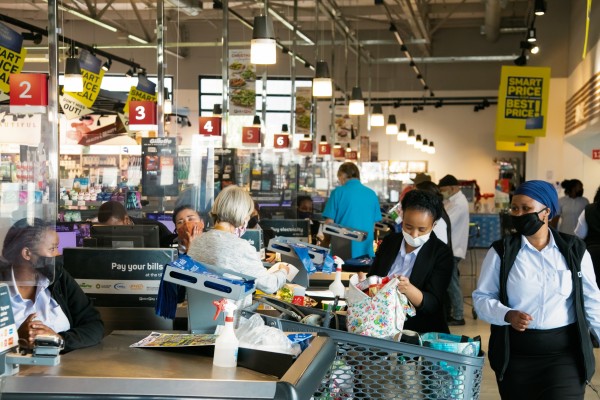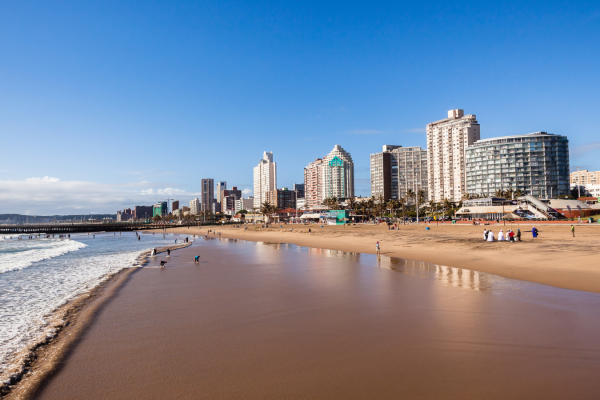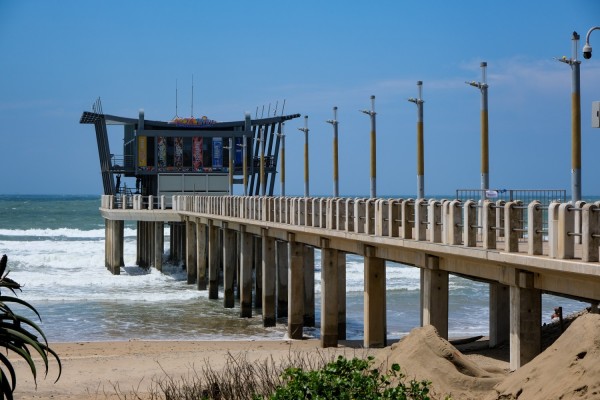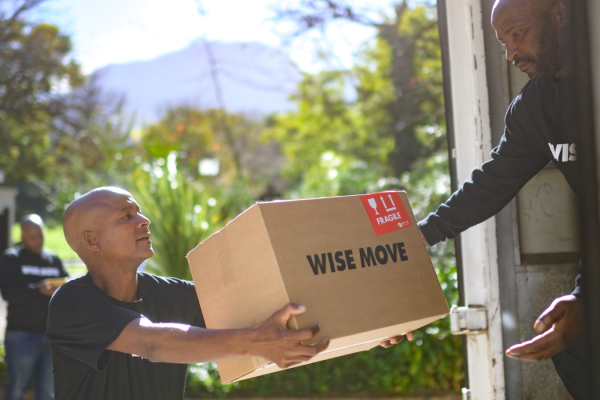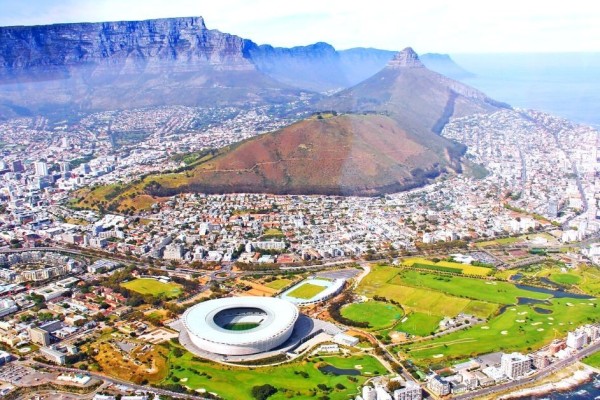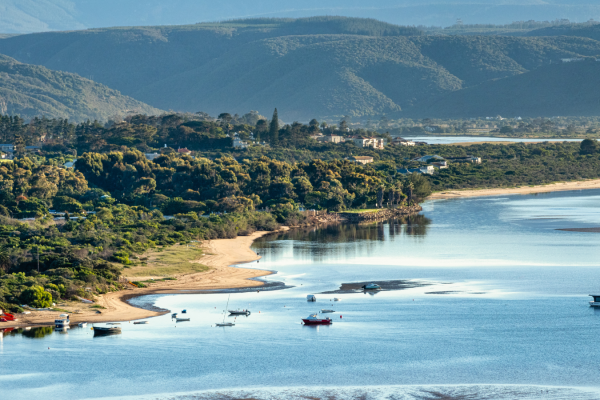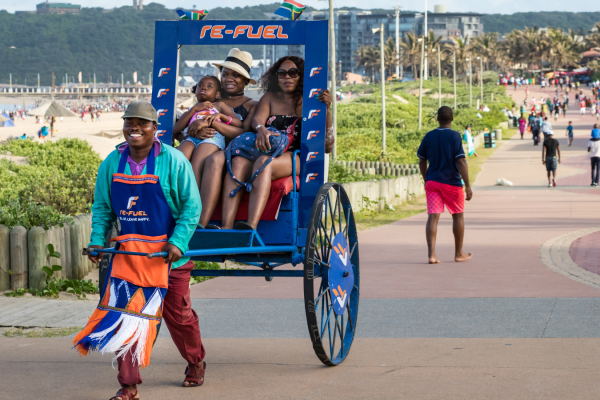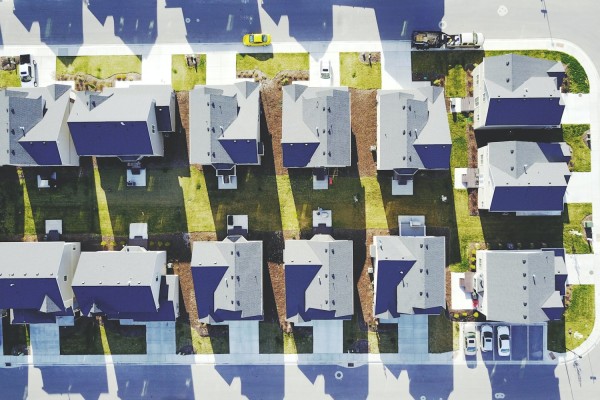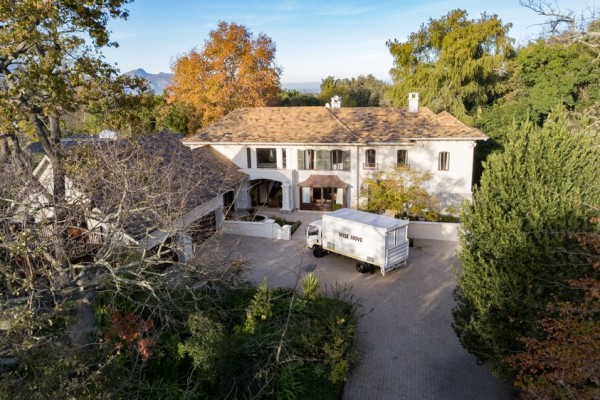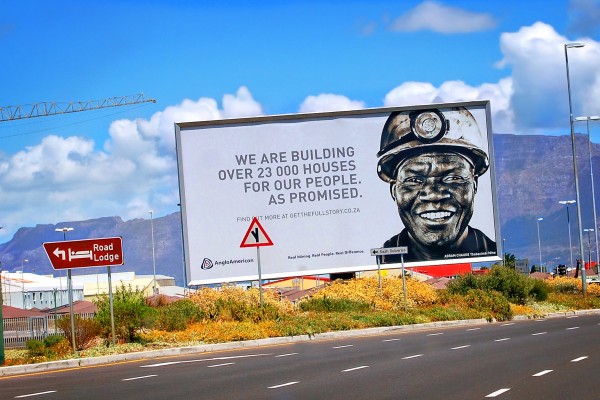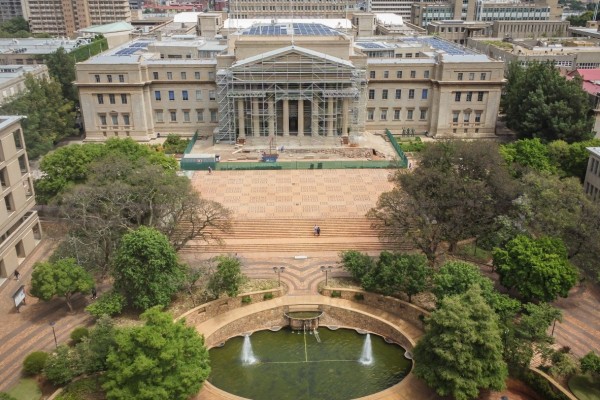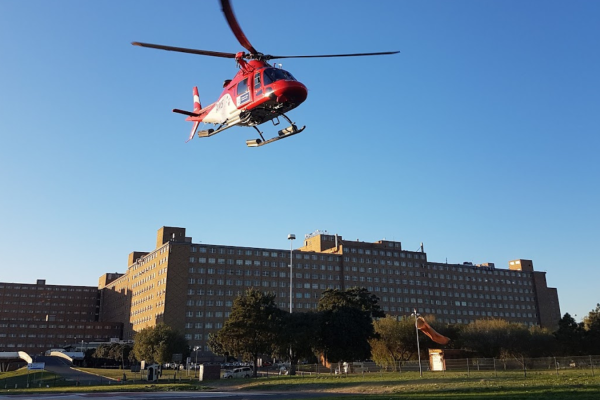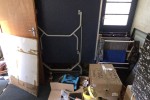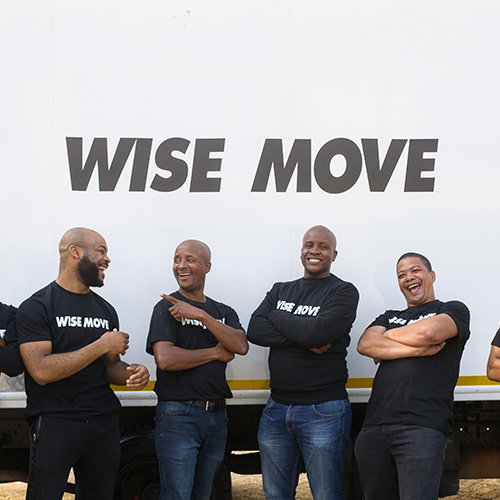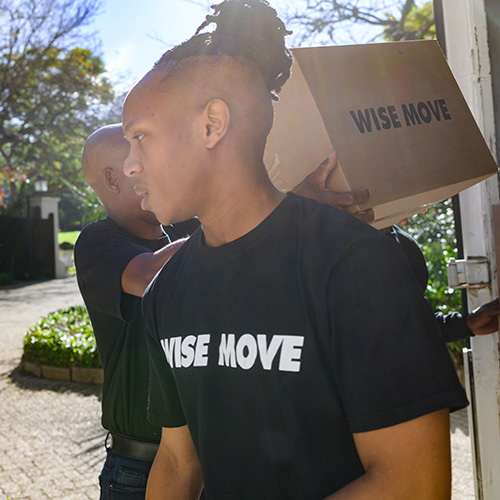The Cost of Living in Durban [2025]
![The Cost of Living in Durban [2025] The Cost of Living in Durban [2025]](https://cdn.wisemove.co.za/image/blog/8269f29186cb3c209c1271a9c5054728.jpeg)
Durban, South Africa’s coastal gem, is loved by many for its sun-drenched beaches, lively culture, and year-round warm weather.
From family holidays to girl’s trips and even destinations for lottery winners, Durban is a favourite. But do you really need to win the jackpot to live there?
Affectionately called eThekwini, this city offers a unique mix of urban and coastal living. If you’re considering making Durban your new home, it’s essential to understand the cost of living.
Reasons to move to Durban
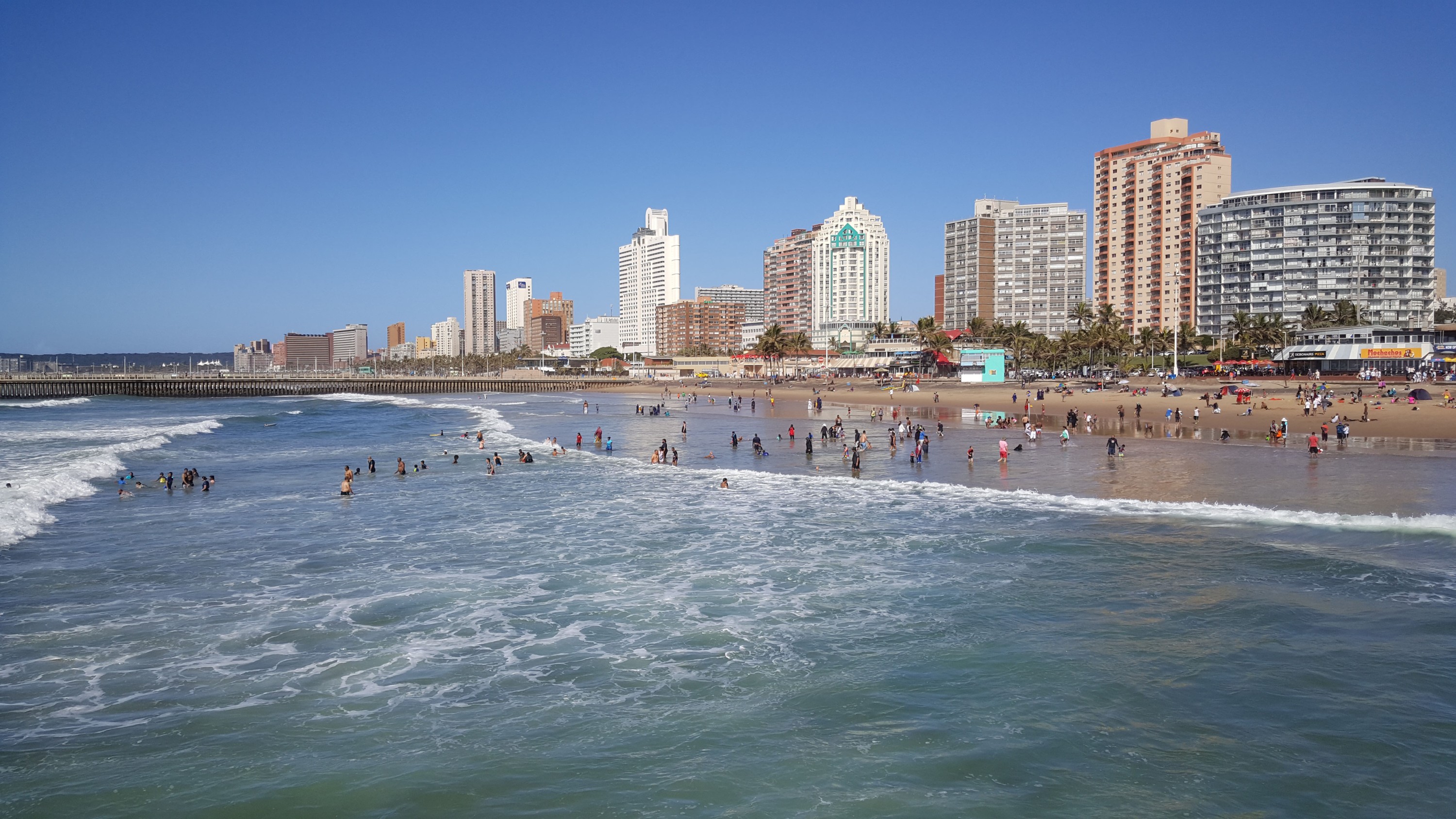
Durban is a top contender for immigrants and locals alike. It's a city of endless summer—offering warm weather and beautiful beaches year-round. If you’re an outdoor enthusiast, this makes it a haven for water sports and hiking. The subtropical climate ensures that Durban always feels like a vacation, even when you’re just going about your daily life.
But Durban’s appeal goes beyond the weather. It’s one of South Africa’s most culturally diverse cities.
In Durban, Nelson Mandela’s vision of a Rainbow Nation comes to life as the city’s cultural diversity is reflected in its food, festivals, and everyday life.
Durban is deeply influenced by Zulu and Indian cultures—which blend with colonial history to create a city unlike any other. And despite being a major urban centre, Durban maintains a relaxed, laid-back lifestyle, offering the best of both worlds: big-city amenities with a slower pace of life.
The city’s food, music, festivals, and art scene is a true reflection of this melting pot of cultural influences. The iconic Bunny Chow, a hollowed-out loaf of bread filled with curry, is a testament to Durban’s rich Indian influence and is a must-try and will only set you back around R70 ($4).
Economically, Durban plays a vital role in the country’s logistics and shipping industry as it is home to Africa’s busiest port. The tourism industry and the rise of call centres also contribute to job opportunities.
Best of all, Durban’s cost of living is lower than that of other major cities like Johannesburg and Cape Town, making it a more affordable option for many South Africans.
Roughly four million people call Durban their home, and for good reason (as you’ll see below). Aside from affordable living and picturesque scenery, there are major urban and coastal developments on the go. The R594m Westown Square Development in Shongweni is set to be a showstopper, putting Durban on the map in terms of impressive infrastructural development to the tune of 20 000 residential units, and even more shopping malls and other facilities - a major draw card for visitors looking to explore the countryside just up the hill.
Salary expectations in Durban
Salaries in Durban vary depending on the industry, qualifications, and experience. Although Durban’s salaries are ower than those in Johannesburg or Cape Town, the city’s lower cost of living balances this out.
The average annual salary in Durban is approximately R26,616 per month.
Entry-level salaries in the hospitality industry can start as low as R5,000 per month, while professionals in managerial roles can earn up to R50,000 or more.
High-paying professionals
Whether you’re a fresh graduate or currently in the workforce, Durban has many high-paying jobs on the rise.
Here is the average salary range you can expect (based on your experience):
- Operations Manager: R350,000 – R550,000
- Office Administrator: R120,000 – R180,000
- Registered Nurse: R250,000 – R400,000
- Accountant: R280,000 – R450,000
- Software Developer: R350,000 – R600,000
- Administrative Assistant: R100,000 – R180,000
- Bookkeeper: R180,000 – R300,000
Individual income tax in Durban
If you’re planning to move to Durban, it’s essential to factor in how South Africa’s individual income tax will impact your cost of living.
This is especially important if you’re considering settling in the vibrant city centre or along Durban’s coastline. So, how does the South African Revenue Service (SARS) tax your chosen profession?
| Taxable Income Range | Tax Rate |
| R0 - R95,750 | 0% |
| R95,751 - R237,100 | 18% |
| R237,101 - R370,500 | 26% |
| R370,501 - R512,800 | 31% |
| R512,801 - R673,000 | 36% |
| R673,001 - R857,900 | 39% |
| R857,901 - R1,817,000 | 41% |
| Over R1,817,000 | 45% |
Understanding how taxes apply to your income can help you budget effectively and make informed decisions as you settle into life in Durban.
Accommodation costs in Durban
The cost of accommodation—whether you're planning on renting or buying—is one of the main factors to consider in your budget when moving to a new city.
Durban is big, spanning approximately 225 square kilometres, and boasts the best of both coastal and inland homes on offer. There are plenty of plenty of ocean views to choose from all the way up and down the coast from uMhlanga to South Beach to Port Shepstone. And if you prefer the tranquil beauty of luscious vegetation and vast expanses of open land surrounding you, you could opt for a home in the equally as popular upper highway area, such as Kloof, Hillcrest or Gillitts. Or, if you'd prefer to be more central, check out Morningside, Berea, Westville, or Pinetown and surrounds.
Property prices can vary substantially in Durban, depending on your location. There are also a few other things that influence property prices, such as sea views, security, utilities, as well as nearby schools, malls and access to healthcare facilities.
Renting
Renting in Durban is considerably more affordable than in Johannesburg or Cape Town. Whether you want a modern apartment in the city or a cosy beachside flat, Durban has great options that won’t break the bank.
Central Durban
- In central areas like Berea, Glenwood, and Morningside, you can expect to pay between R7 000 and R12 000 monthly for a two-bedroom apartment, depending on location, condition of the property, and nearby amenities.
- These areas are known for their vibrant communities, access to amenities, and proximity to the city centre.
Northern Areas
- For beach lovers, Durban North and Umhlanga offer luxury living closer to the coast, but with slightly higher rental prices.
- A more sought-after two-bedroom apartment in these upmarket areas ranges from R12 000 to R18 000 per month.
Inland
- If you’re looking for more affordable options, neighbourhoods further from the coast, such as Pinetown and Westville, offer a quieter suburban feel and lower rents.
- In these areas, you can rent a two-bedroom apartment for as little as R5 500 to R8 500 per month, making them popular among families.
When renting, it’s important to budget for utilities. Water, electricity, and refuse removal will add an extra R1 000 to R2 500 per month to your living expenses, depending on the size of your property and usage.
| Area | Rental Per Month |
| Central Durban | R7 000 and R12 000 per month |
| Northern Durban | R12 000 to R18 000 per month |
| Inland Durban | R5 500 to R8 500 per month |
Buying property
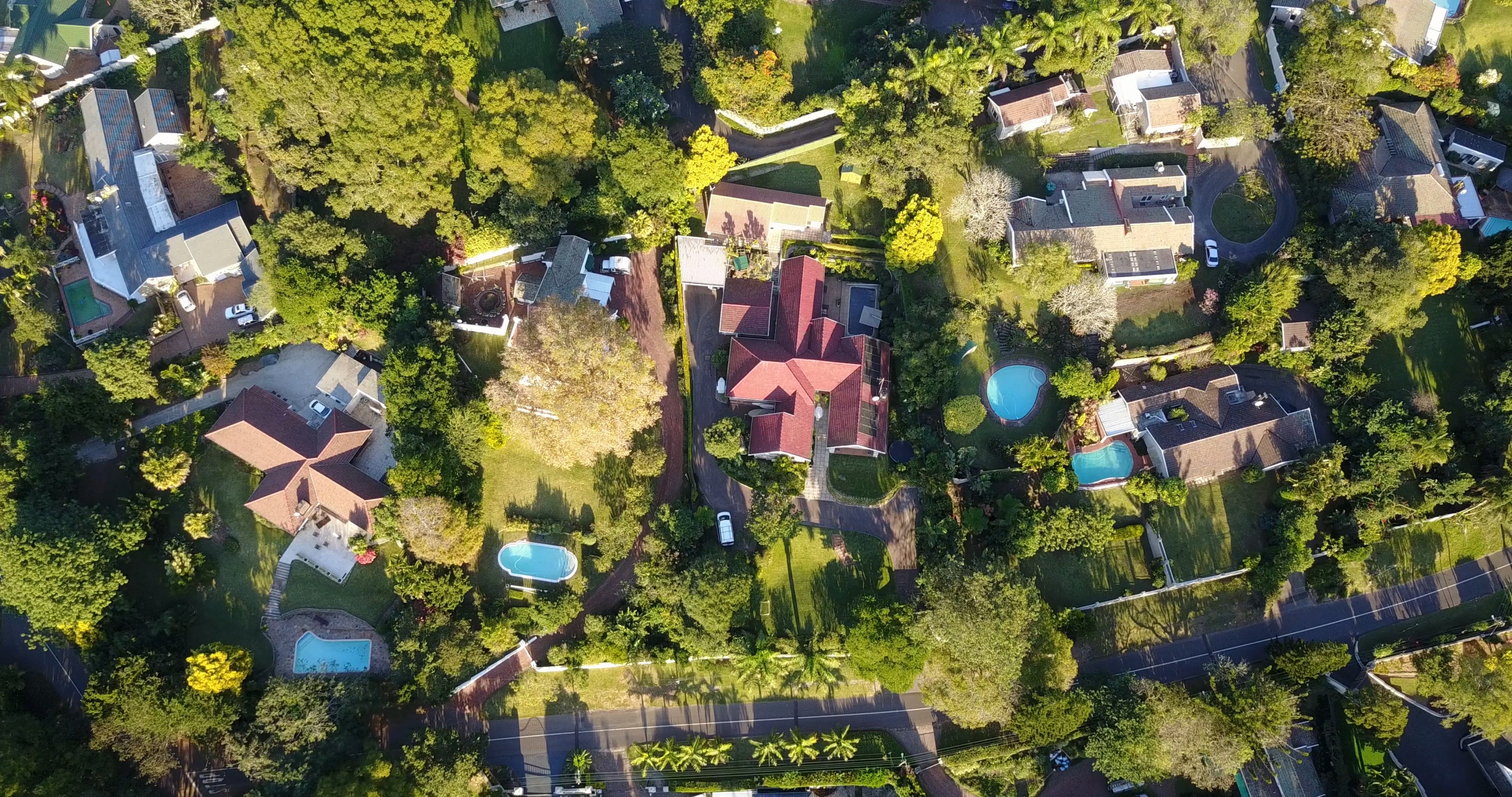 Purchasing property in Durban is also more affordable than in Johannesburg or Cape Town, making the city a great option for buyers looking for a good investment or a forever home.
Purchasing property in Durban is also more affordable than in Johannesburg or Cape Town, making the city a great option for buyers looking for a good investment or a forever home.
Umhlanga, La Lucia, and Durban North
- In sought-after areas like Umhlanga, La Lucia, and Durban North, a three-bedroom house can range from R3 000 000 to R6 200 000.
- These areas offer proximity to the beach, top schools, and high-end amenities like the luxury Oceans Mall.
Glenwood, Berea, and Morningside
- For those looking for a more central location, neighbourhoods like Glenwood, Berea, and Morningside offer a range of older homes with character, as well as new developments.
- Property prices in these areas range from R1 500 000 to over R6 000 000, attracting a variety of buyers.
Pinetown, New Germany, and Queensburgh
- If you’re working with a more modest budget, areas like Pinetown, New Germany, and Queensburgh are worth considering. Here, three-bedroom houses sell for between R1 000 000 and just over R2 000 000.
- These neighbourhoods not only offer affordable homes but also a quieter, suburban lifestyle with easy access to the city.
Durban neighbourhoods of interest
Durban is home to a range of neighbourhoods, each offering something unique. Here are some of the most notable:
- Umhlanga: Known for its upmarket lifestyle, Umhlanga is home to luxury apartments, affluent families, and professionals. The area boasts proximity to the beach, the Gateway Theatre of Shopping (one of the largest malls in the Southern Hemisphere), and the corporate headquarters of major companies like Unilever South Africa.
- Morningside: Popular with young professionals, Morningside offers trendy Victorian and Edwardian-style homes. The area is known for its vibrant nightlife, restaurants, and entertainment options, particularly along Florida Road.
- Glenwood: A diverse, family-friendly neighbourhood with tree-lined streets and a close-knit community. Glenwood offers various places of worship, excellent schools like Glenwood High, and a diverse range of restaurants.
- Durban North: A spacious suburb close to the beach, Durban North offers a more relaxed lifestyle with good schools, parks, and access to the city.
Renting vs buying
Here's a comparison of the cost to rent or buy a two-bedroom apartment in some of the main areas mentioned above.
Coastal 2-Bed Apartment
| Area | For Rent/Month | To Buy |
| Port Sheptone | R8 000 | R800 000 |
| North Beach | R8 800 | R1 125 000 |
| South Beach | R11 500 | R595 000 |
| Amanzimtoti | R16 900 | R960 000 |
| uMhlanga | R24 000 | R1 200 000 |
Inland / CBD 2-Bed Apartment
| Area | For Rent/Month | To Buy |
| Berea | R6 500 | R1 225 000 |
| Morningside | R8 000 | R1 195 000 |
| Pinetown | R11 000 | R675 000 |
Upper Highway 2-Bed Apartment
| Area | For Rent/Month | To Buy |
| Hillcrest | R9 000 | R1 330 000 |
| Kloof | R12 500 | R979 000 |
| Gillitts | R17 500 | R1 600 000 |
Luxury Complexes
You will find many luxury complexes popping up in Durban. Many are equipped with great lifestyle facilities and amenities—such as gyms, and onsite restaurants. Not to mention, plenty of safe outdoor space to go fishing, hiking, cycling, and picnicking with your family.
There are both affordable and luxury accommodation options in highly-coveted complexes like Balwin Properties, Zimbali, Cotswold Down, or Mount Edgecombe Estates.
Here's a comparison of the rental and purchase price of a 3-bedroom house in on of these covetted complexes.
| Complex | Rental/Month | Purchase Price |
| Balwin Properties | R13 500 | R3 069 900 |
| Cotswold Downs | R28 000 | R5 300 000 |
| Zimbali Estates | R40 000 | R4 800 000 |
| Mount Edgecombe | R19 000 | R9 495 000 |
Cost of utilities (water & lights)
If you're moving here from abroad, you'll have to get used to the term, ‘water and lights’ instead of utilities. They will need to be included as part of your Durban living costs. Your electricity bill can vary, depending on the size of your home, the number of dependants, and the number of electrical appliances you have. Electricity costs can escalate quickly, so keep a close eye on your electricity usage.
Durban and surrounding areas are also often affected by flooding, meaning your water and lights may be affected. Compared to other areas, Durban increased its rates by 14.9% in the same period. This is higher than the increases in Cape Town (8.6%) and Johannesburg (9.3%).
Rates and taxes
If you're a property owner, you'll be obligated to pay rates and taxes based on the value of your property. You may also be responsible for this expense if you're a tenant and it's in your lease agreement.
Rates and taxes are a surcharge that goes to the municipality for the general services they provide. This includes refuse removal, sewerage services and the maintenance of roads, etc.
For example, if a property is valued at R800,000 and the rate in the Rand is R0.009 (0.9 cents), the annual property rates would be R800,000 × 0.009 = R7,200, equating to R600 per month.
Healthcare expenses
The cost of healthcare in Durban is a separate expense to budget for. Of those who can afford it, medical aid is preferable to having no health insurance. Healthcare prices can vary depending on the medical aid plan you choose and your healthcare requirements.
For example, some medical aids may cover routine trips to the doctor and dentist, whereas others don't. Prices can range anywhere from R1000 upwards.
Compare the costs of medical aid plansin South Africa:
| Medical Aid | Plan | Monthly Premium Range |
| Discovery Health | Key Care Series | From R1184 to R11 430 |
| Bonitas | BonEssential Select Hospital Plan | From R1154 to R11 321 |
| Bestmed | BestMed Beat1 Network Hospital Plan | From R1616 to R11 662 |
| Medihelp | MedMove! | From R750 to R14 903 |
| Momentum | Evolve Option | From R589 to R14 903 |
Cost of education
Durban has an array of educational institutions providing top-notch learning opportunities for pre-schoolers all the way to tertiary learners.
For pre-schoolers, creche fees in Durban for a full day per month range from R1500 to R6000.
The cost of public schools ranges from an average of R2300 per child per month upward. Private schooling can set you back R5000 per month per child (and upwards). Investigate the option that falls into your budget comfortably.
| Monthly public primary school fees | |
| Sarnia Primary School: | R2792 |
| Westville Primary School: | R3150 |
| Penzance Primary School: | R3163 |
| Glenwood Junior Primary School: | R2985 |
| Monthly private primary school fees | |
| Curro Heritage House: | R6420 |
| Kainon School: | R5625 |
| Maris Stella School for Girls: | R8088 |
Travel costs in Durban
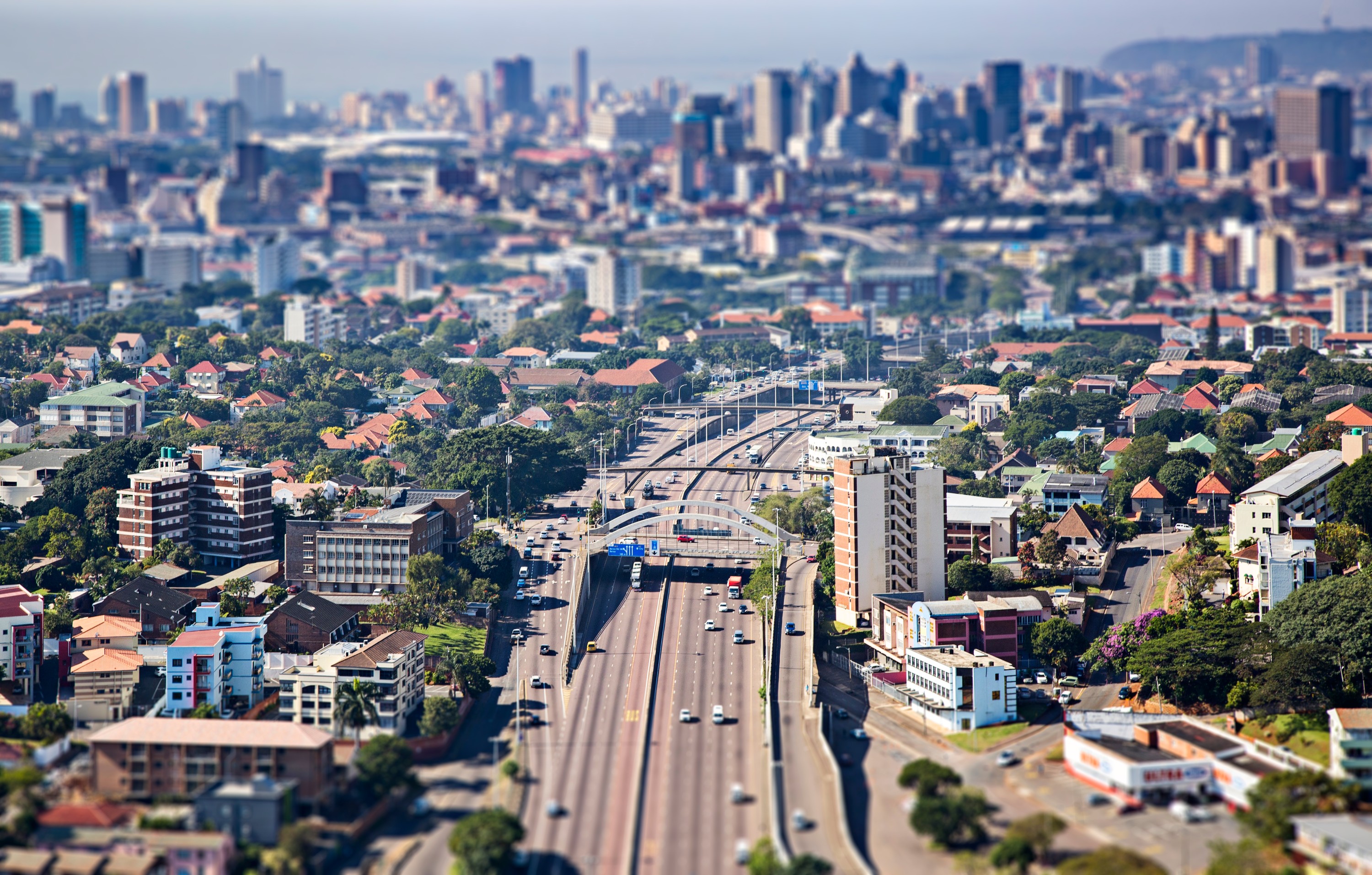 Durban offers a variety of transportation options, making it easy to get around.
Durban offers a variety of transportation options, making it easy to get around.
The most popular and affordable way to travel is by minibus taxis, which are known for their loud music and unique designs (R10 and R20 depending on the distance and route).
They’re a cultural experience in themselves and offer the cheapest way to navigate the city.
For more comfort, you can use ride-hailing services like Uber and Bolt or opt for metered taxis (a short trip within the city centre may cost around R30 to R50, while longer distances, like a trip from the city centre to Umhlanga, can range from R100 to R150).
Durban also has a public bus system, although it doesn’t cover all areas of the city. Prices vary, but a one-way ticket on the People Mover bus service (which serves the central business district) costs about R6.
And, if you prefer to drive, as many Durbanites do, Durban’s well-maintained roads make it a good option. Petrol and diesel can, however, be pricey. Keep an eye on the local news for updates and monitor prices regularly to keep track of your monthly fuel costs. You can use this trip fuel cost calculator to help plan for expenditures.
To note—parking in the city centre can be a challenge during peak hours.
Cost of groceries
As of last year, food inflation remains relatively modest. If you're on your own, you can expect to pay around R5300 for your monthly food basket on average in Durban.
The cost of groceries in Durban is generally comparable to the national average in South Africa, though prices can vary based on specific items and purchasing habits. Here’s a breakdown of average prices for common grocery items in Durban:
| Item | Average Price in Durban | National Average Price |
| Milk (1 liter) | R18–R19.64 | R15–R30 |
| Loaf of Fresh White Bread | R 16.98 | R11.25–R24 |
| Rice (1 kg) | R 24.33 | R20–R45 |
| Eggs (12 count) | R34–R34.60 | R24–R60 |
| Local Cheese (1 kg) | R78–R121.64 | R90–R200 |
| Apples (1 kg) | R23–R24 | R15–R37 |
| Bananas (1 kg) | R 22.26 | R10–R40 |
| Tomatoes (1 kg) | R 21.44 | R15–R38 |
| Potatoes (1 kg) | R 20.00 | R10–R40 |
| Onions (1 kg) | R 20.00 | R10–R40 |
Durban also provides you with the opportunity to shop around at various retailers. All of the below retailers off weekly specials and reward programmes for frequent shoppers.
- Woolworths
- Checkers
- Boxer
- Spar
Dining out
Durban offers a wide variety of places you can dine out—making it a fun, cultural experience. As you would expect, fast food is generally cheaper than fine dining. No matter your budget, there are plenty of options for you to choose on either end of the scale.
For example, you could pay just fifty bucks for a burger and chips at a local fast food eatery and close to R200 for a burger and chips at a fine dining restaurant.
Here's a cost comparison of a burger and chops from different kinds of restaurants in Durban.
| Dining Experience | Average cost per meal |
| Fast food ie Steer | R49.90 |
| Higer end Eat In ie Olive & Oil | R125 |
| Higher end franchise ie Mugg and Bean | R175 |
Entertainment in Durban
There's no shortage of things to do in Durban for locals and visitors alike. The city’s beaches are a major draw for those interested in surfing, swimming, or relaxing on the sand. North Beach, South Beach, and Umhlanga Rocks are popular choices for beachgoers.
Family favourites
For families uShaka Marine World is a must-visit, offering water slides, dolphin shows, and one of the largest aquariums in the southern hemisphere all for as little as R183 per ticket. Art lovers can explore Durban’s many galleries, including the KwaZulu-Natal Society of Artsand Durban Art Gallery.
Meandors in nature
If you are a nature enthusiast, you can enjoy Durban’s many parks and nature reserves for hiking or a day way from the hussle and bussle of city life. There's always something to explore—such as the Durban Botanic Gardens (free entry) and Paradise Valley Nature Reserve (R13 per person), which features a beautiful waterfall.
Support your local team
Sports fans will enjoy catching a rugby match featuring the Durban-based Sharks or watching a football game with local teams like AmaZulu FC or Lamontville Golden Arrows. For regular Premier Soccer League (PSL) matches, ticket prices typically range from R40 to R100 for general admission. However, while tickets for a local Sharks rugby match at Kings Park generally range from R50 to R150, high-profile matches, such as international games, can cost significantly more, ranging from R350 to R2000 per ticket.
And, as for shopping, the Gateway Theatre of Shopping and the new Oceans Mall offer endless stores, restaurants, and entertainment options.
Ready to move to Durban?
Durban’s warm weather, cultural diversity, affordable living, and relaxed coastal vibe make it an attractive place to call home.
Whether you’re looking to rent, buy, or simply enjoy the city’s beaches and lifestyle, Durban has something for everyone.
Offering the best of both worlds—a laid-back atmosphere with the convenience of urban living—Durban is an excellent choice for anyone considering a move to South Africa’s coastal gem.
When you're ready to make the move, let Wise Move help you get there. With Durban's top removalists ready to help you settle in, you can make the move to Durban your easiest one yet.
What do our customers say?

